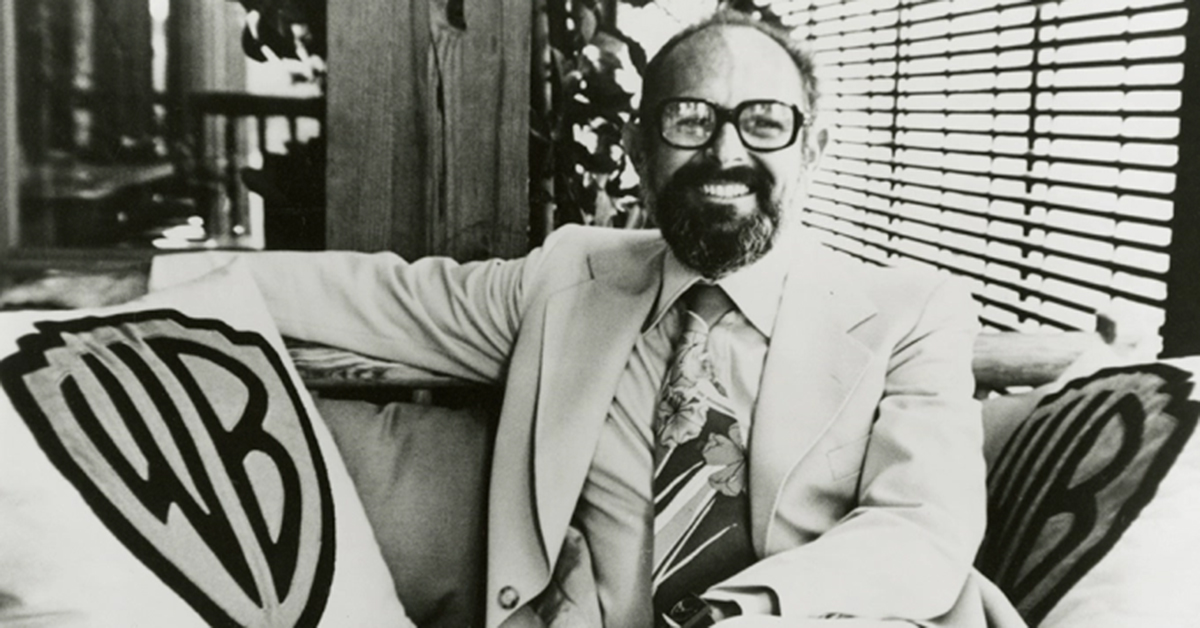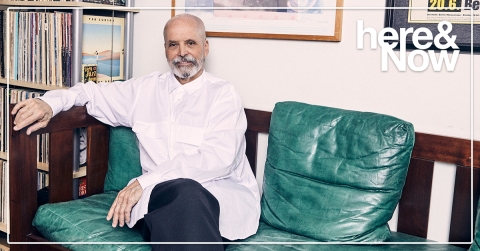Longtime Warner Bros. Records Chairman Mo Ostin died at his home in Los Angeles at the age of 95 last week. In his tribute to Ostin, Nonesuch Records President David Bither writes: "without him, Nonesuch would not be the same company that it is today."
By David Bither
“'One of the great things about Warners, I always felt, was our emphasis and priority was always about the music,’ Mr. Ostin told the Los Angeles Times for a profile of him in 1994.” —from the New York Times obituary, August 1, 2022
Virtually every head of a record company has said something like that over the past half century. But the label whose roster and catalog—not to mention its approach to an artist’s career—actually proved the statement true was Warner Bros./Reprise in the Mo Ostin era.
Mo passed away last week, and it is important for us at Nonesuch to take a moment to honor his legacy and the impact Warner Bros. had on the label we became.
The most obvious example of this are the Warner artists who, starting in the late '90s, made Nonesuch their home:
Laurie Anderson
David Byrne
Ry Cooder
Emmylou Harris
k.d. lang
Brad Mehldau
Pat Metheny
Randy Newman
Joshua Redman
Wilco
It is striking to look at those names and realize that they are only a small part of a much longer list of artists from Mo Ostin’s Warner Bros. Records that defines a thirty-year era in music, from the mid-’60s to the mid-’90s.
But there are more important ways that Mo influenced Nonesuch. As remarkable as the WB artist roster might have been, it was supported by a renowned management team Mo built during those years. His A&R staff was legendary: among them are our good friend Lenny Waronker, our dearly departed colleague Karin Berg, and, crucially, the late Bob Krasnow.
In 1974, Mo invited Krasnow, the founder of Blue Thumb Records, to join Warner Bros.’ A&R staff. Krasnow spent the subsequent decade at WB, working with such artists as Chaka Khan, George Benson, and Funkadelic. He also brought to WB the renowned German jazz label ECM Records, founded by Manfred Eicher and run in the US by Bob Hurwitz. It was not surprising that a label with the creative vision of ECM found a home at Warner Bros.—the environment that Mo nurtured made it a logical pairing.
Bob Krasnow left Warners in 1983 to become Chairman of Elektra Records, and in the decade he oversaw Elektra, he revitalized the legendary label. One of his first decisions was to ask Bob Hurwitz, with whom he had worked closely in bringing ECM to Warner Bros. six years earlier, to take over Nonesuch, founded in 1964 by Jac Holzman as part of Elektra.
Bob Hurwitz imagined Nonesuch as a label that would be devoted to original music of all kinds, and in the ensuing thirty-plus years, he was the architect of what we understand Nonesuch to be today: a label that could be a home for composers, jazz visionaries, world music icons, and contemporary musicians of the highest caliber.
WB made another critical contribution to Nonesuch’s evolution in 2004 when Warner Music Chairman Roger Ames and Warner Bros. Records President Tom Whalley agreed that Nonesuch most properly belonged under the WB umbrella—that our roster and philosophy was most reminiscent of the company that Mo built. We have been part of the Warner Bros.—now Warner Records—family ever since.
I first met Mo in 1982, when I was a young writer working for Warner Communications, WB’s parent company. Walking into the WB office in Burbank was almost a religious experience for me—I had grown up listening to the records that had come out of that building and had more Warner records on my shelves than any other label—it wasn’t even close. So it was with some trepidation that I walked into Mo’s office for the first time. But I found a self-effacing man of great dignity—a rarity in the record business of his or any era, particularly for someone who accomplished so much.
In his New York Times obituary, Mo is quoted as saying “to me, the artist is the person who should be in the foreground.” And this is one other way that Mo Ostin influenced us at Nonesuch—we have always followed his dictum, believing that it is the work of the artists on our label who deserve attention. If we are to be known for anything, it is for their music.
So it is with profound gratitude that we pay our respects to Mo Ostin; without him, Nonesuch would not be the same company that it is today.
David Bither is the President of Nonesuch Records.
- Log in to post comments



